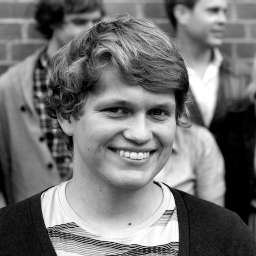In addition to a certain music festival in London, it seems like the entire classical music world descends on Bucharest for the month of September. For three weeks, the Romanian capital and its Enescu Festival plays host to renowned orchestras, chamber ensembles, singers and instrumentalists, performing a remarkably wide variety of repertoire, the most central part of the festival being the music of George Enescu, after whom it was named. Kicking off this year’s programme was Enescu’s only opera Oedipe, and Vladimir Jurowski and the London Philharmonic Orchestra showed why his music deserves more than the occasional outing, also outside of Romania.
A performance of Oedipe is a rare occurence, both in concert halls and on operatic stages and, in a way, it's easy to understand why. Enescu places considerable demands on almost everyone involved, especially on the baritone singing the title role, who hardly stops singing after his second act entrance. The opera tells the whole life story of Oedipus, from his birth in Thebes to his death outside Athens, but is more interested in the inner workings of the title character than gory spectacle. The most dramatic events of the story happen off-stage – like Oedipus killing his father, or gouging his eyes out – and are only referred to in subsequent monologues. But the music is endlessly captivating, in turn seductively lyrical and savagely angular, yet always beautiful.
Enescu’s music, with its long, sweeping phrases, is clearly inspired by Wagner, yet Jurowski made sure to highlight other influences as well as Enescu’s own idiosyncracies. The folk-music inspired lyricism of the first act had more than a hint of Ravel and Debussy to it, and the violence of the Act 3 – when Oedipus’s incest and patricide is revealed to him and his wife/mother Jocaste – is downright Straussian, with an even more brutal edge. Yet I had the feeling that the LPO hadn’t quite gauged the acoustics of the velvet-clad Grand Palace Hall.
The hall, built in the 1960s to house meetings of the Communist Party, and its velvet chairs and wall coverings seemed to do little but muffle the sound. The loudness of the magnificently played orchestral climaxes was swamped, reducing what could and should have been a tidal wave of sound into a trickle. Still, there was much excellent playing, in particular in the low strings, who played with a deliciously creamy sound in the many orchestral interludes. Screeching clarinets, mournful oboes and seductive low flutes also impressed with beautifully played solos.
The chorus plays a very large part in this opera, commenting, oratorio-like, on the action. The Choir of the George Enescu Philharmonic got off to a slightly rocky start, not always together with Jurowski and the orchestra, but they soon found their footing, and the jubilant finale to the second act was impressively loud. In the Act 4 especially, the male voices sang with beautiful tone and homogeneity. Bolstering the already sizeable chorus in the Act 2 finale was the Romanian Radio Children’s Choir, singing from one of the side balconies. Unfortunately, they were all but drowned out by the acoustic and general volume.
Oedipe has a large cast and while not everyone managed equally well, there was still some stunning singing, especially from the primary characters. Dame Felicity Palmer sang with heartbreaking tenderness and eventual anguish as Queen Merope, Oedipe’s adoptive mother. As the prophet Tirésias, Sir Willard White was on sparkling form, all terrifying doom and gloom, yet beautifully sung.
I did wish for some sort of characterisation from Ruxandra Donose’s Jocaste; while she sang beautifully enough, there was little sense of any emotion until her final phrase, realising she has married her own son. Christopher Purves, on the other hand, was deliciously menacing as Jocaste’s brother Créon. Singing the title role of Oedipe, Paul Gay seemed tireless. From the lyricism of the second act to the full throttle drama of the third, right through to the final, glorious apotheosis, his dark baritone rang through the auditorium. Throughout the opera, there was a real sense of character development, an already conflicted man thrust into the most tragic and dramatic circumstances.
While musically triumphant, the performance proved rather dramatically flaccid. Doing an opera in concert limits how much stage action is possible, but the lack of interaction between the characters made the plot more difficult to follow. As if to remedy the lack of staging, video projections by Carmen Lida Vidu filled the back wall of the auditorium. Both attempting to delineate the plot and create rudimentary backdrops, the projections were often so cartoonish that they made the whole thing look like a bad slide show presentation. Still, not even the projections could detract from the glorious music making going on in front.


